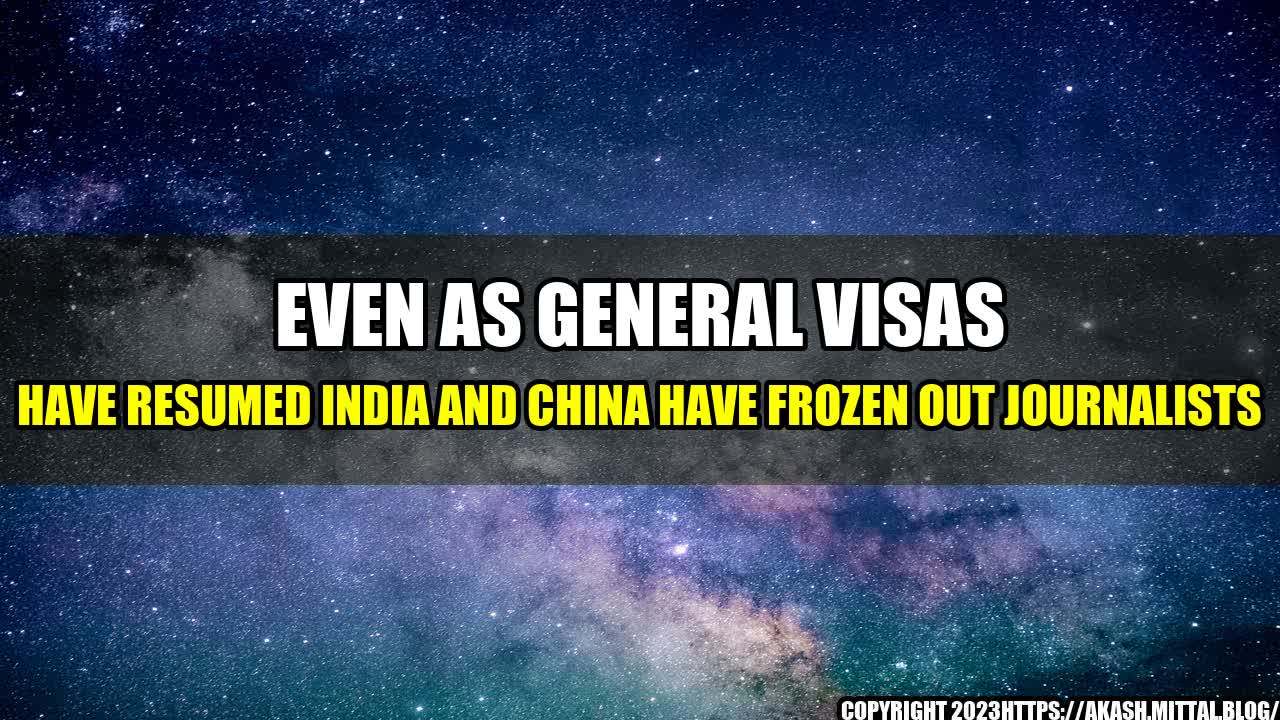
As the world begins to open up and resume travel, some countries are still restricting access, particularly for journalists seeking to report on stories in India and China.
Journalist, Sarah Williams, recounts her experience of being denied entry into China last month. Sarah had been approved for a visa and had all of the necessary paperwork, but as she boarded the plane to China, she received a message from the airline stating that her visa had been revoked. When she inquired at the Chinese embassy, she was told that it was a mistake and that her visa had not been revoked, but she was still not allowed to board her flight.
This is just one example of the challenges faced by journalists trying to report on stories in China and India.
China and India are some of the most important countries in the world right now, both in terms of population and economic growth. But they are also two of the most restrictive countries when it comes to press freedom. In the 2021 World Press Freedom Index, China ranks 177 out of 180 and India ranks 142. While both countries have loosened restrictions in recent years, there is still a long way to go before journalists can truly report without fear of censorship or retaliation.
Journalists who do manage to get into the country face a range of challenges, including restrictions on what they can report, surveillance, and harassment or detention. In April 2021, Indian journalist, Siddique Kappan, was arrested while en route to report on the gang rape and murder of a young woman. He was charged under India's stringent anti-terrorism laws and has been in detention ever since.
Restricted access to China and India has far-reaching consequences. Journalists play a critical role in informing the public about events and issues around the world. When they are denied access or face heavy restrictions, the public is left in the dark.
For example, in March 2021, China's National People's Congress adopted a new five-year plan that includes a "dual circulation" model, which aims to reduce the country's reliance on foreign markets. This is a major shift in the country's economic policy, but it has received relatively little coverage in the international press, in part due to restrictions on journalists.
Similarly, India is currently facing multiple crises, including a surge in COVID-19 cases, a farmer's protest, and clashes with neighboring countries. The world needs to understand what is happening in India, but with restricted access for journalists, it is difficult to get an accurate picture.
Despite these challenges, journalists around the world continue to pursue stories in China and India. Some have found creative ways to report, such as using social media or anonymous sources, while others have formed networks to share information and support each other.
However, the onus is on the governments of China and India to ensure that press freedom is respected and that journalists are able to report without fear of reprisal. This includes relaxing restrictions on travel and reporting, re-evaluating anti-terrorism laws that are used to intimidate journalists, and ensuring that those who attack or harass journalists are held accountable.
In conclusion, restricted access to China and India for journalists is a major problem that needs to be addressed. The public has a right to know what is happening in these countries, and journalists play a critical role in ensuring that information is accurate and unbiased. Governments must take steps to ensure press freedom is respected and that journalists are able to report without fear of intimidation or detention.
Journalism/Press Freedom/Travel
Curated by Team Akash.Mittal.Blog
Share on Twitter Share on LinkedIn